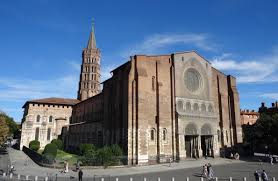We have officially entered the week in which I head to Liverpool. It’s coming so fast! Today, we head to the land of baguettes, haute couture and the current champions of Junior Eurovision. It’s France!
History
France was one of the seven countries to take part in the very first Eurovision Song Contest in 1956. This year marks their 65th appearance in the contest. They have won the contest on five occasions; in 1958 with “Dors mon amour” by André Claveau, in 1960 with “Tom Pillibi” by Jacqueline Boyer, in 1962 with “Un premier amour” by Isabelle Aubret, in 1969 with “Un jour, un enfant” by Frida Boccara as part of a four-way tie and finally in 1975 with “L’oiseau et l’enfant” by Marie Myriam. In the 21st century, France has had less success. They have only finished in the top ten five times since 2000, most recently in 2021. At the 2022 contest, Alvan & Ahez finished twenty-fourth with “Fulenn”.
Selection
The French broadcaster, France Télévisions, originally announced that they would use the third edition of Eurovision France, c’est vous qui décidez! to select their 2023 entrant. However, this was cancelled for an internal selection. La Zarra was selected to represent France in Liverpool.
Artist
Fatima Zahra Hafdi, better known as La Zarra, was born on August 25 1987 in Montreal in Canada to parents of Moroccan descent. During her childhood, she lived between Montreal and Longueil, a city on the other side of the Saint Lawrence River from Montreal, before eventually settling in Montreal. Before becoming a singer, she worked as a hairdresser/
In 2016, La Zarra released her debut single “Printemps blanc” (White spring), a collaboration with the French rapper Niro. In 2021, she increased her fame with the release of “Tu t’en iras” (You will go away). The single received heavy airplay on French radio and was certified platinum. Later that year, she was nominated for Francophone Revelation of the Year at the NRJ Awards. She ended the year with the release of her debut album “Traîtrise” (Treachery).
The song that La Zarra will perform in Liverpool is called “Évidemment” (Obviously). It was written by Ahmed Saghir, Yannick Rastogi, Zacharie Raymond and La Zarra herself. La Zarra and Ahmed also composed the song.
Song Review
If Édith Piaf had a disco phase, it would sound like La Zarra.
This song serves confidence with a certain chic. Every note that La Zarra sings and every move she makes in the performance has a purpose. It is captivating to watch and listen to. I would usually complain about a song being too polished but this has a certain finesse to it that you know that even if you take the lyrics away, this song is French.
With the Rugby World Cup, Junior Eurovision and the Summer Olympics all happening in France in the next year and a half, France has a lot going on. However, France would like to add Eurovision 2024 to that list. This definitely has the potential to content for the win, or at the very least finish in the top 10.
The One That Got Away
If La Zarra can say yes to Eurovision, then that should open doors for other well-known names in France to take the leap. In that case, I nominate Yseult.
Yseult Onguenet first rose to fame as the runner-up of the tenth season of Nouvelle Star in 2013. After a disappointing debut album, Yseult moved more towards writing and production and even was a model for an ASOS campaign. It wasn’t until the release of her single “Corps” (Body) in 2020 when Yseult achieved musical success again. The song was a commercial and critical success and earned her the “Female Debut of the Year” at the Victoires de la Musique 2021.
Yesult has already dipped into the Eurovision world. She was a songwriter in the 2019 selection and a judge in the 2022 selection (where she famously disagreed with one of her fellow judges). She clearly is curious about the contest, so maybe she should aim for the Eurovision stage itself soon.
Bonne chance à la France!
Is La Zarra obviously going to win or lose? Leave your comments below. Stay tuned tomorrow for another Eurovision preview!
(Sources: eurovision.tv, France Télévisions, YouTube)











